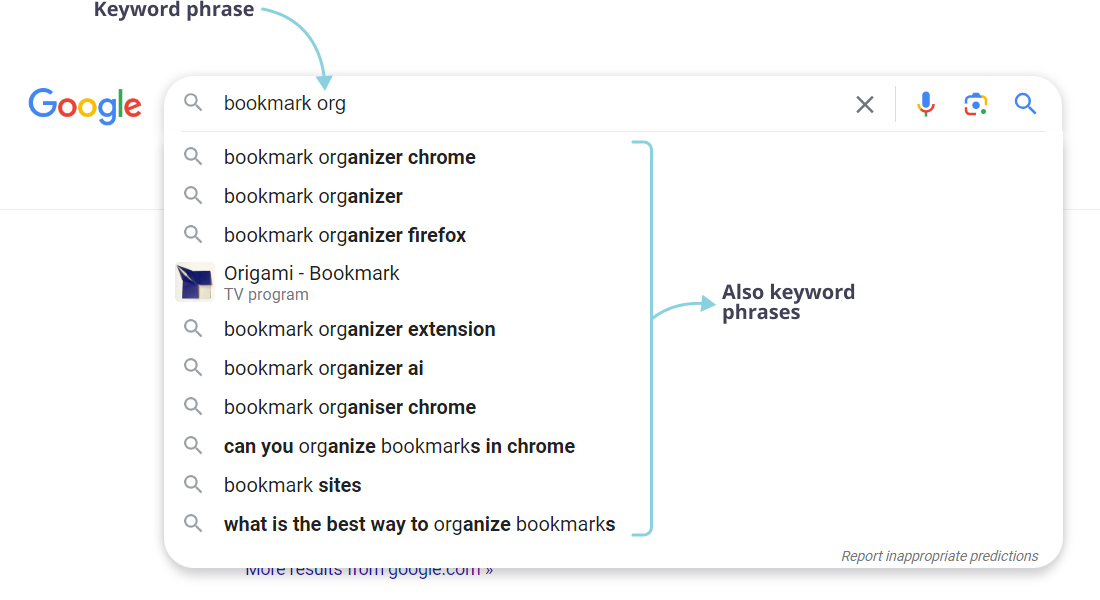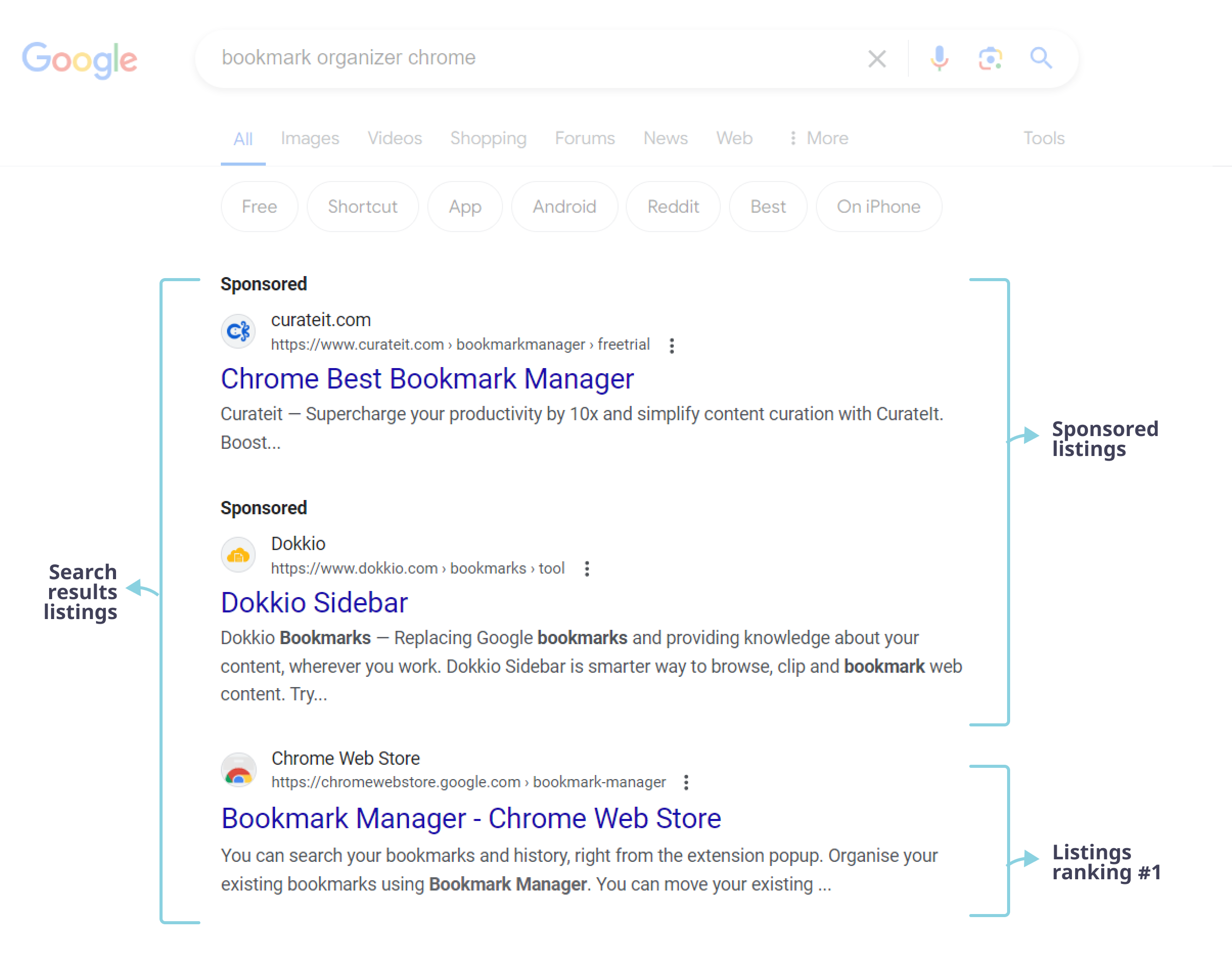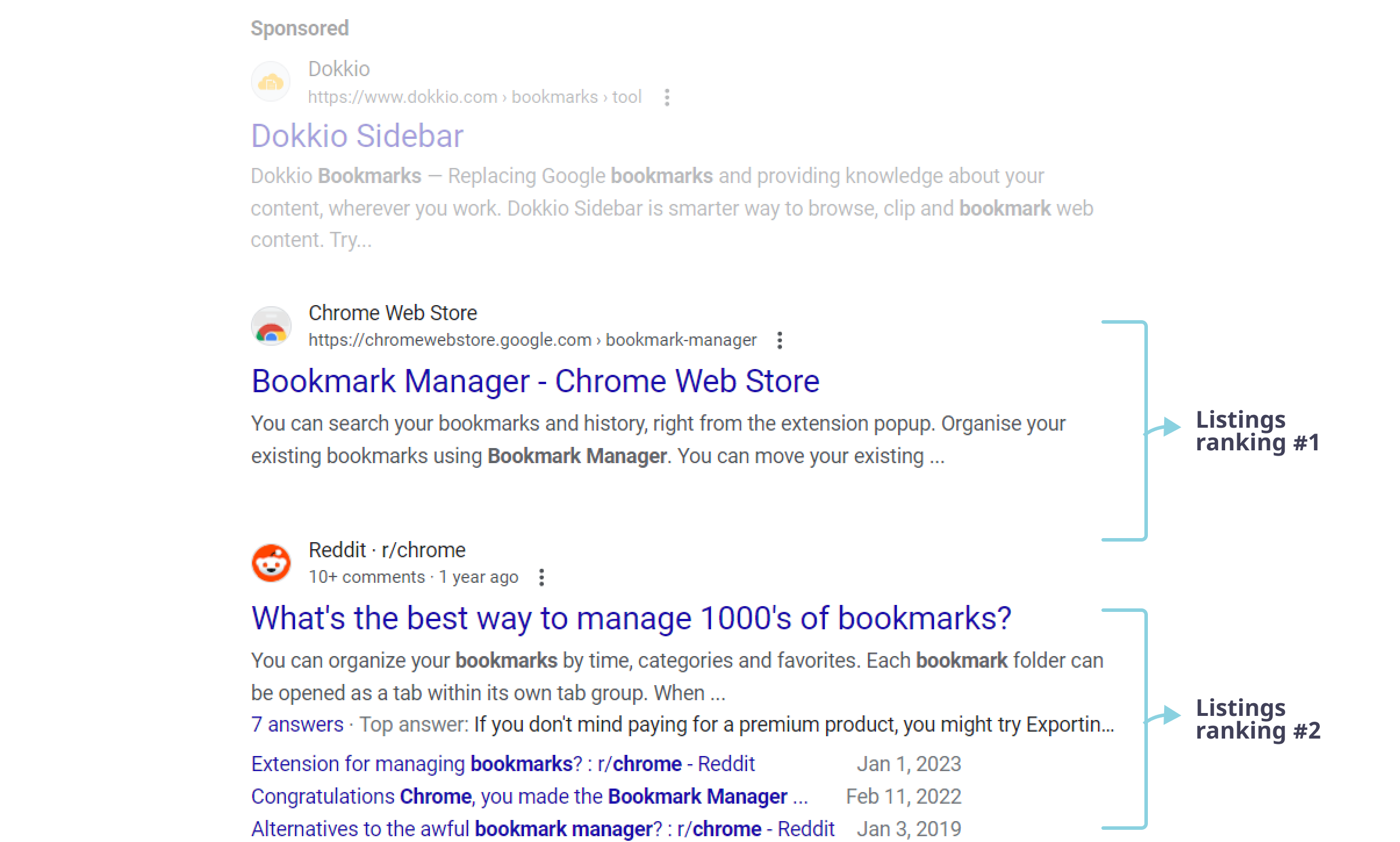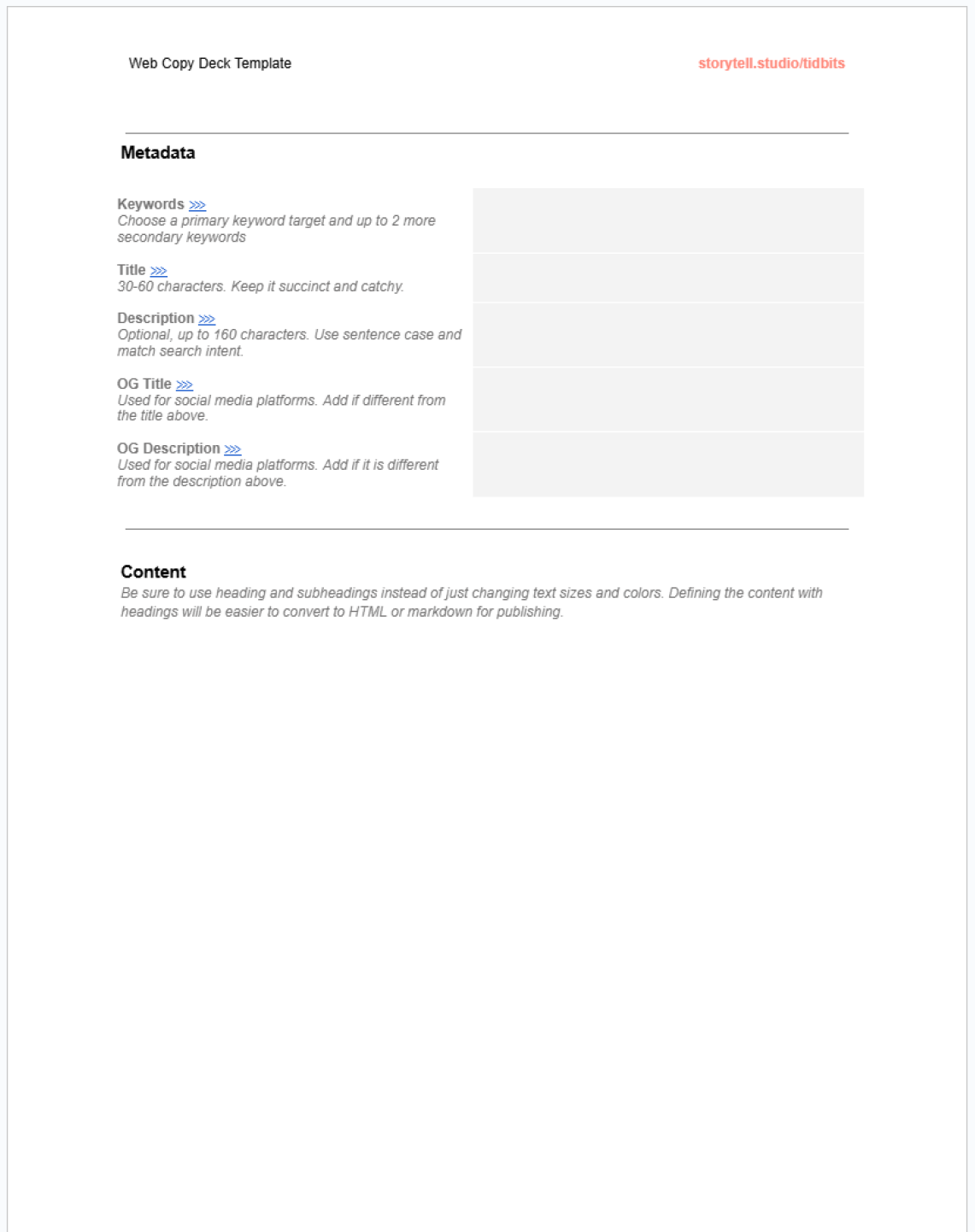How to do SEO for beginners
Published July 28,2024 | by Venessa Perez
Search engine optimization (SEO) is an important part of giving your website an opportunity to be discovered, but what the heck is SEO? With keywords, keyword difficulty, titles, descriptions, etc SEO can feel overwhelming and don't get me wrong SEO can be super complex for larger websites with hundreds of thousands of visitors a month, but for smaller web sites it doesn't have to be. Here's a primer on why and how to take SEO digital marketing into account when creating content for your web site.
What's in this article
What is SEO?
So you know that search engines, like Google, are the way people find most web sites on the internet. Search engine optimization is the activity of making your web site easy for search engines to "read" so they are more likely to share it with other folks in this here internet, all for free.
When a web page is structured well for SEO it is well structured for readers that are used by people with visual impairment. So not only will taking SEO into consideration help your business outreach, it will be accessible to more people. Sweet.
When you're focusing efforts on search engine optimization you're really trying to figure out:
- What words or phrases do people type into the search engine when they want to find product or services like mine?
- How can I be one of the top 10 listings on the results page of a search?
- What would make someone click on my website's listing instead of someone else's?
SEO keywords are the words and phrases people use in search engines
Lets say I am creating a product that helps people organize their bookmarks. Just to get a sense of what others would write when searching for a product like mine, I would go to Google and start typing. What's typed into search engines are keywords. A keyword can be made up of one word, multiple words, or phrases.
Notice that when I start typing, Google tries to guess and provides a list of what it thinks I may be looking for. These are also keywords that other web sites are using hoping to get my attention by anticipating my needs.

Press enter and I'll see hundreds if not thousands of results on, the aptly named, Results page. Most people will only skim through the listings on the first page and, maybe, go to page 2 or three. But more likely, they will search again trying to "refine" their search. That's why search ranking becomes another really important part of your SEO digital marketing strategy, but more on that later.

Most search engines reserve the top spots for paid search ads, called sponsored ads. Sponsored ads look like a result but are paying to get listed first. Right below those are web sites that are ranking naturally for the keywords because:
- The page is readable to search engines
- The content is relevant and well written, and
- People stay on the site for a while after clicking the link
That's the goal for a baseline SEO digital strategy: get found by people who are looking for what you are offering and do it by creating good quality content and making it easy for search engines to add you to the results page.
There's a whole art in understanding and picking the right keywords for your pages but getting into the habit of thinking about what information people want to read before writing your content is a great way to get the natural benefits of getting listed high on the page when people search for particular words or phrases.
Check out the cheat sheet below of key things to keep in mind when thinking about keywords for your web pages and if you're ready for a deeper dive into the world of Keywords, I've added some great resources to get you started. Dive in deeper or go to the next primer SEO primer: Ranking.
Keywords resources
Here are some great resources for learning more about keywords
- What is keyword research
- How Many SEO Keywords Should a Page Really Target?
- 8 Most Important Types of Keywords for SEO
Note: keywords are becoming a less popular way for search engines to serve up your page but they haven't gone away and I find that it's a great way to make sure you're focusing the content on your page on a specific topic so I recommend to still work with them.
SEO Ranking relates to your web site's position on a search engine's results page
Once your website is ranking, which means it's actually showing on the search results page, is already a big win but where on the search results page your website gets listed matters A LOT.

After you search for something, you're taken to the results page and see a bunch of results for your search. Being listed #1, #3, #10 or pushed out of the first page of results literally mean the difference between one or hundreds of new people visiting your web page. That's why showing up on search result pages matter and what position your site shows in, also matters.
A good way to understand what you need to offer to ensure you get the best position for your web site is to see who's already ranking for your target keywords. Are they offering more content? Is there content better written? Do they include an interactive tool, video, or animation to keep people engaged? Think about if similar content is right for your business and if it is, consider creating something similar but that speaks to your business' unique value.
A good example of this is mortgage calculators. For the purposes of this example, let's meet Maven, our home seeker who'd like to get an idea of how much home she could afford.
Maven is thinking about buying a home and wants to understand how much house she can afford within her budget. Maven, like 2.7 million people this month (yes 2.7 Million!) searches for a mortgage calculator.
In the search results page, Google offers a tool as its first results and if Maven keeps scrolling she'll see Bankrate, a web site dedicated to calculators, Nerd Wallet a site that offers much more financial information and Bank of America, all offering calculators. Even though all these companies have different business models they all want Maven's attention because she potentially has a need for a mortgage. To get her attention they created content and tools that people like her want and that target the "mortgage calculator" keywords. If Maven finds the information and tool valuable she will look at the brand favorably and potentially become a customer but even if she doesn't convert to a customer, her clicking on their listing and engaging on their site increases the chances that they'll show up on top of the search results page so someone else like Maven can see them.

The wonderful thing about search results page is that anyone can compete for top ranks. Bank of America is a $300 billion dollar institution and it's getting outranked for this keyword by mortgagecalculator.org, which in turn, is most likely making tens of thousands of dollars on advertising with the audience it's drawing.
In summary, once you have a good idea of what keywords to target and are showing up on the results page, enticing people to click your listing instead of someone else's becomes really important. We'll talk about that next.
Metadata, like title and description, is information about your web site that people see on a search results page
Metadata is hidden information about a page that search engines read and that are displayed when your web site ranks on a search results page. It's not content that shows on the actual web page. Metadata plus the page's content (what people visiting your page actually see) is what's used to help search engines understand if and when they should show your page in their search results.
Metadata can include a couple of different datapoints: Keywords, Title, Description, Image, plus social media platform specific information
A meta title describes the topic of your page and shows up on the search engine results page
A search result's title is usually the very first thing that people read which makes sense because, at least in Google, it's the largest part of the results listing.
A good title sets the right expectation on what the page is about. The rule of thumb has been to keep titles about 30-60 characters in length. For an idea, this sentence is exactly sixty characters.
However, SEO experts like Garrett Sussman from iPullRank are now noting that Google is using AI to rewrite titles, especially if they have parentheses, use the same keyword more than once or are too long. to get the most out of them. So the more Google may rewrite using on-page headers and anchor text. If it's not rewriten, anything beyond the max character count will get cut off and no one likes being cut off. That's why it's important to keep titles relevant, succinct, and enticing. It's a lot to ask for but with care you can create titles that get people to click your listing.

A meta description is a short summary of your page and shows up on the search engine results page
Meta descriptions are like a pitch to convince users that the page is exactly what they're looking for.
Time is precious and each click is a commitment so why would someone spend their valuable time waiting for your page to load just to see if it is actually something that's useful to them? This is why descriptions become super important, they help convince people why a page is exactly what they're looking for, why it's worth their time. Think of meta descriptions as tiny little micro pitches. You know your web page is valuable but no one else does, so take the time to describe how and why it'll help potential visitors meet their search goal.
Meta descriptions may not help your site's ranking (where it shows on the list of results) but it helps people decide if visiting your web site is worth the click.
Note: There are reports that Google is also rewriting descriptions using AI but for now, it does not hurt to have them.
Make SEO planning part of writing
We write content for the web because we want to provide value, to showcase our expertise, to help others, to get people to hopefully buy our products but to do any of that, people have to first find our content. Yes we can pay to get people on our web site but why not do some simple things that can get people on our site for free?
That's why SEO planning becomes such an important part of your digital marketing strategy. The challenge is that it's quite easy to forget it because it's not something that's easily seen. But, there are really simple ways to ensure you're always keeping SEO in mind when planning and writing content for your web site, and that's to include it as part of your copy deck template.
No matter if you like writing in Notepad, Word, Google Docs or anything in between, adding a table on top of your document is a great way to that remind yourself to consider your SEO strategy before you write.

Download Google Docs web copy deck template
Resources
Ready for a deeper dive? Learn more about SEO with these great resources.
- What Are Keywords & Should You Use Them?
- What are rich snippers & how to get them in 2024
- Check to see if your page supports rich results
- Structured Data Generator
- On-page-SEO-Checklist
SEO
Keywords
- Consider your keyword target before writing
- Each page should have a unique primary keyword and up to 3 keywords
- Keyword phrases are typically easier to rank for because they typically have less competition
SEO
Meta Title
- Can be different from the page's main header
- Shows in search results and on the browser's tab
- Should include your primary keyword and maybe power keywords
SEO
Meta Description
- Keep under 160 characters and use sentence case
- Help people decide if they want to click on your link but don't help with ranking
- Make unique for each page
- Summarizes content and match search intent
- Include target keyword where it makes sense